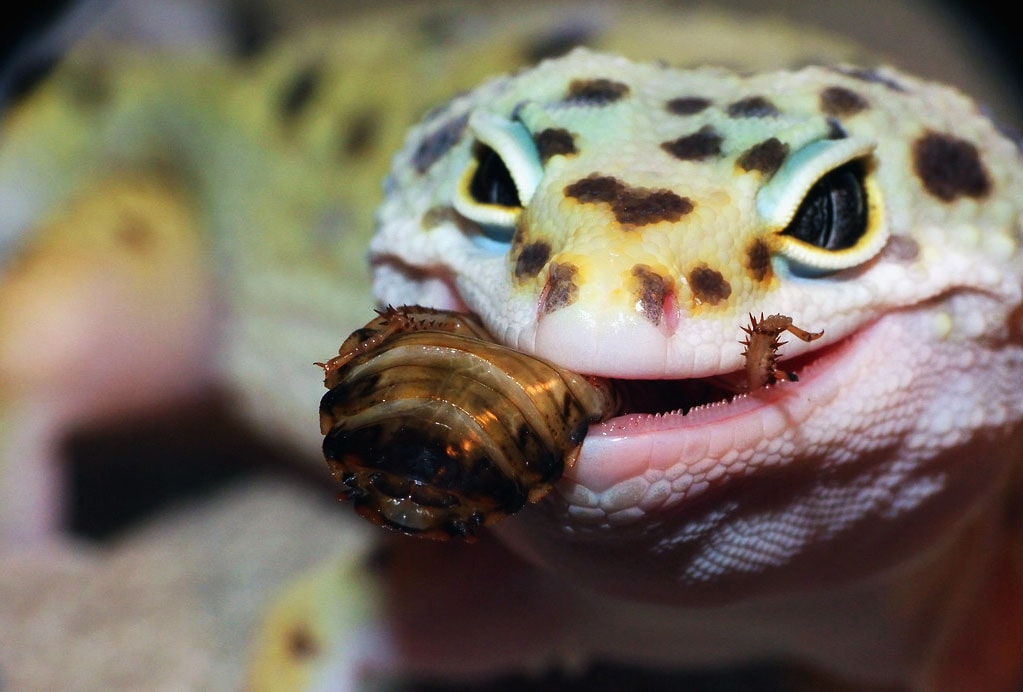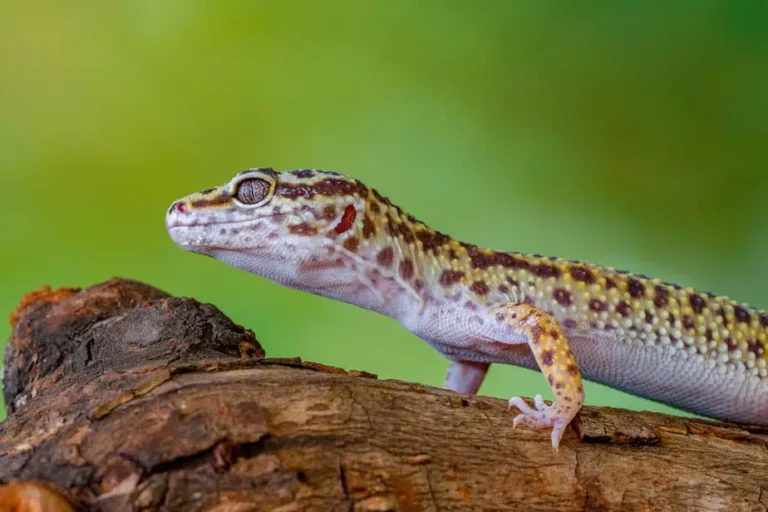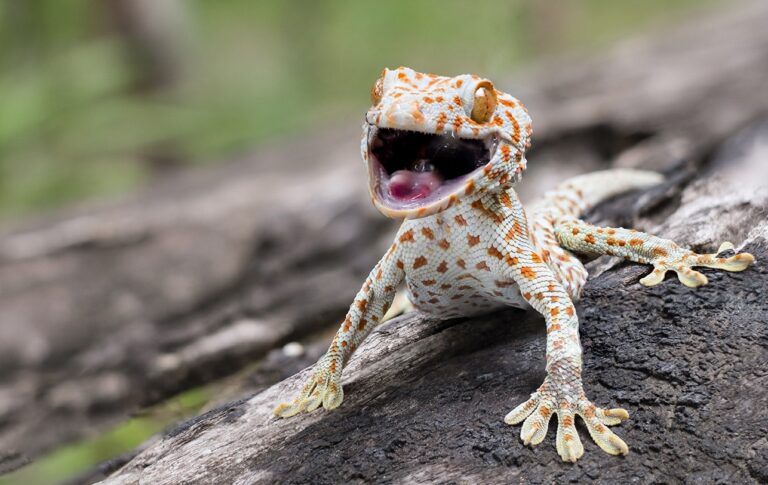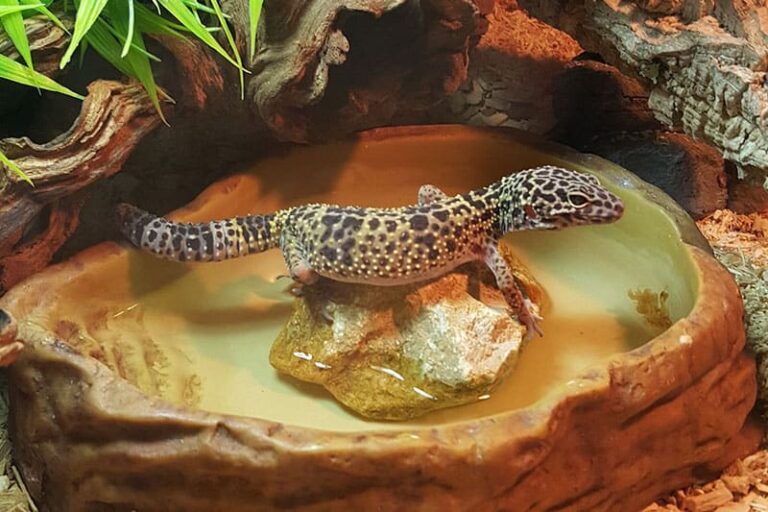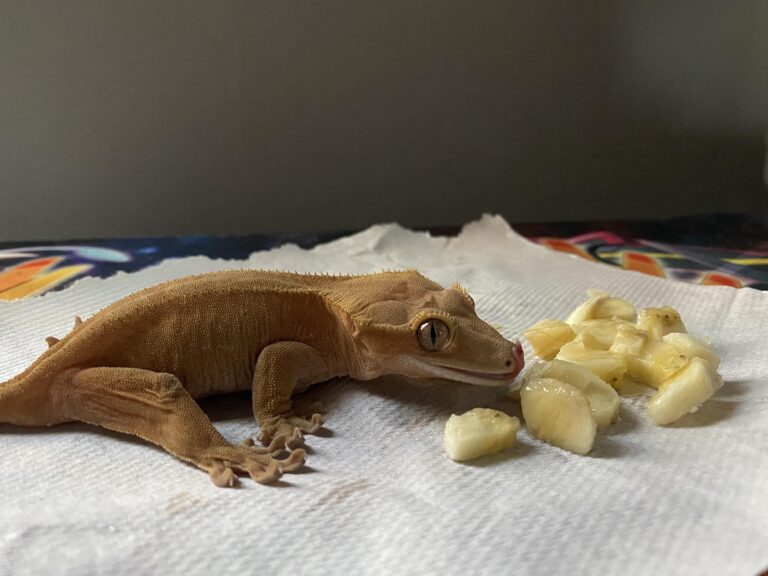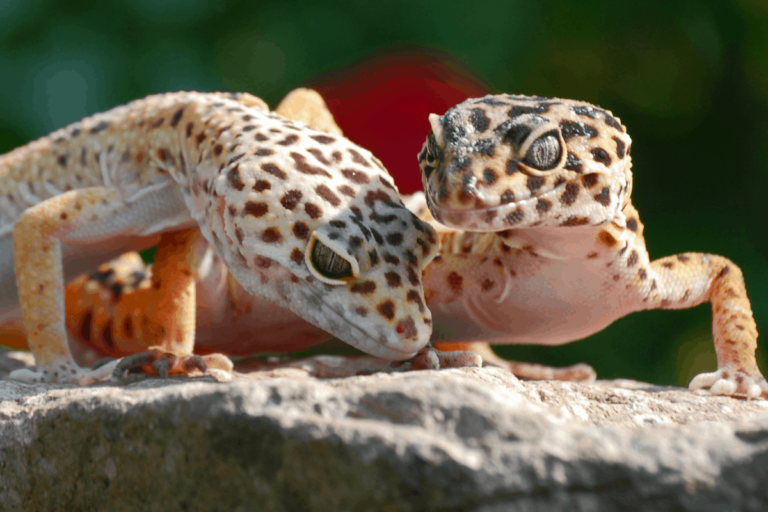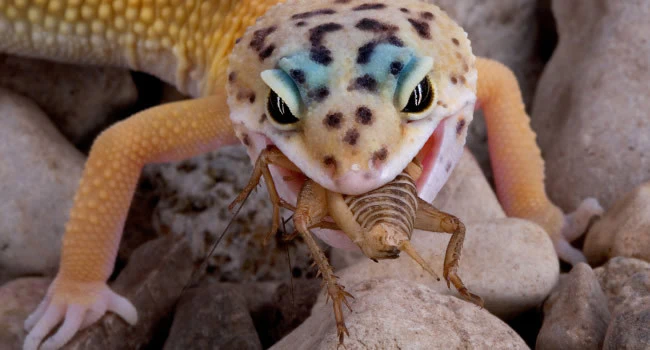Can Leopard Geckos Eat Dubia Roaches?
Have you ever wondered what it’s like to dine like reptilian royalty? Well, I certainly have. As a devoted leopard gecko enthusiast, I’ve spent countless hours researching and experimenting to ensure my scaled companions enjoy a menu fit for the kings and queens of the gecko world. Among the many culinary inquiries that have crossed my mind, one question has stood out: Can leopard geckos eat Dubia roaches?
Yes, Dubia roaches are an excellent choice for feeding your leopard gecko. They’re packed with protein, keeping your reptile energetic and in top shape.
Stick around, and together we’ll explore this delectable chapter of leopard gecko care, ensuring your geckos are well-fed and content.
Nutritional Values:
| Nutrient | Amount per 100g |
| Protein | 23g |
| Fat | 7g |
| Fiber | 1.5g |
| Calcium | 20mg |
| Phosphorus | 270mg |
| Moisture | 61% |
How Many Dubia Roaches To Feed A Leopard Gecko
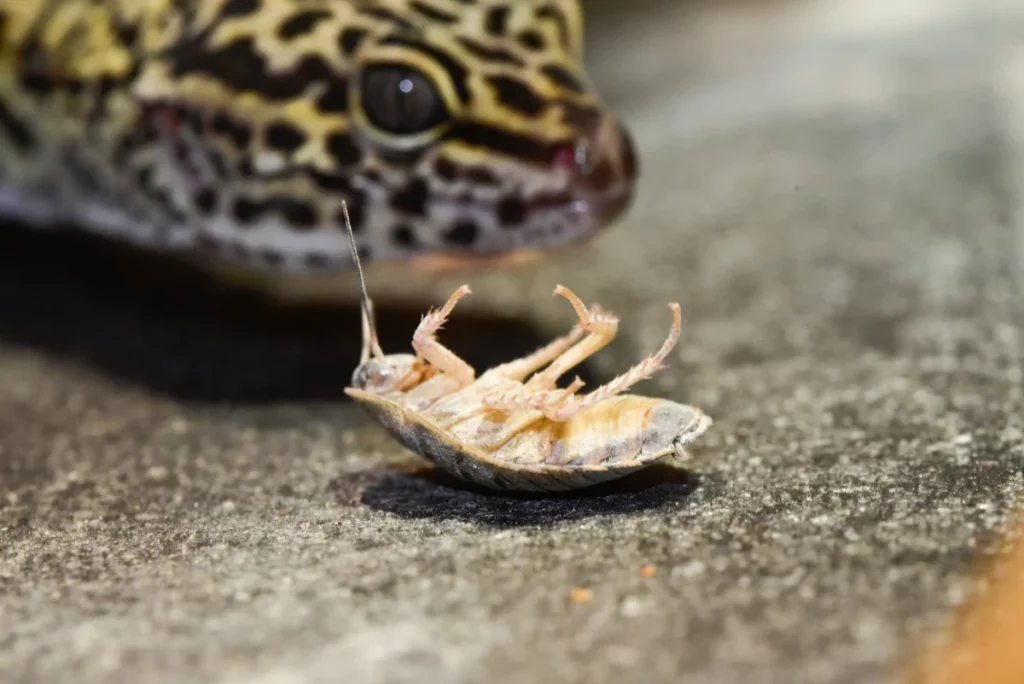
| Age | Size | Dubia Roaches per Feeding | Days per Week for Dubia Roaches |
| Baby (0-4 weeks) | 2-3 inches | 2-3 tiny roaches | 5-6 days |
| Hatchling (4-12 weeks) | 3-4 inches | 3-5 small roaches | 4-5 days |
| Juvenile (12-24 weeks) | 4-6 inches | 4-6 medium roaches | 3-4 days |
| Subadult (24-52 weeks) | 6-8 inches | 5-7 medium roaches | 2-3 days |
| Adult (52+ weeks) | 8-10 inches | 6-8 large roaches | 2 days |
What is the benefit of providing Dubia roaches to leopard geckos?
Dubia roaches offer an array of benefits that make them a top choice for feeding leopard geckos. Their impressive nutritional profile, boasting high protein content and a favorable calcium-to-phosphorus ratio, supports the overall health and bone strength of these reptiles.
Additionally, their low-fat content helps maintain a lean body condition in geckos. They are versatile for gut-loading, allowing for enhanced nutrition, and they tend to live longer in colonies, ensuring a consistent food source.
Further, with easy maintenance, quiet behavior, and a lack of odor, they are a convenient and pleasant option for reptile owners. Moreover, their docile nature ensures safe handling, making them a reliable choice for maintaining your gecko’s well-being.
Disadvantages of Dubia roaches?
While Dubia roaches have more calcium than many other feeder insects, it’s often not enough for leopard geckos. A simple fix is to put the roaches in a bag with calcium-rich supplement powder, shake them up, and then feed them to your geckos. Look for supplements with vitamins and minerals to cover all their needs.
Keep in mind that Dubia roaches can be pricier than mealworms and crickets. To save money and ensure your roaches are well-fed, you can think about breeding them yourself.
Young geckos need smaller roaches, which can be tricky to find. If you can’t find small enough roaches, worms and larvae are good alternatives.
Lastly, if handling or feeding roaches makes you uncomfortable, there are other feeder options you can explore for your geckos.
How to Feed Dubia Roaches to Leopard Geckos?
Acquire Healthy Dubia Roaches: Start by obtaining healthy Dubia roaches from a reputable source. Ensure they are the appropriate size for your gecko’s age and size.
Gut Load the Roaches: Before feeding them to your gecko, it’s crucial to gut-load them. This means offering the roaches a nutritious diet for a day or two to enhance their nutritional content. Use high-quality commercial gut-loading food or provide fresh vegetables, fruits, and grains.
Further, to gut-load, combine leafy greens, vegetables, and fruits. Utilize foods high in vitamin A, such as sweet potatoes, carrots, and pumpkins. Calcium, kale, and broccoli should be added to leafy greens.
Dust with Calcium and Multivitamin Powder: To ensure your pet receives essential nutrients, lightly dust the gut-loaded Dubia roaches with calcium powder and a multivitamin supplement. This step is especially important for maintaining your friend’s health and preventing calcium-related issues.
Offer the Roaches: Place them in your gecko’s enclosure. It’s best to do this in the evening or at night when they are most active. You can use a shallow dish or simply release the roaches into the enclosure.
What will happen if they overfeed Dubia roaches?
- Weight Problems
- Reduced Activity
- Digestive Blockages
- Liver Health
- Organ Strain
How To Store Dubia Roaches for Leopard Gecko?
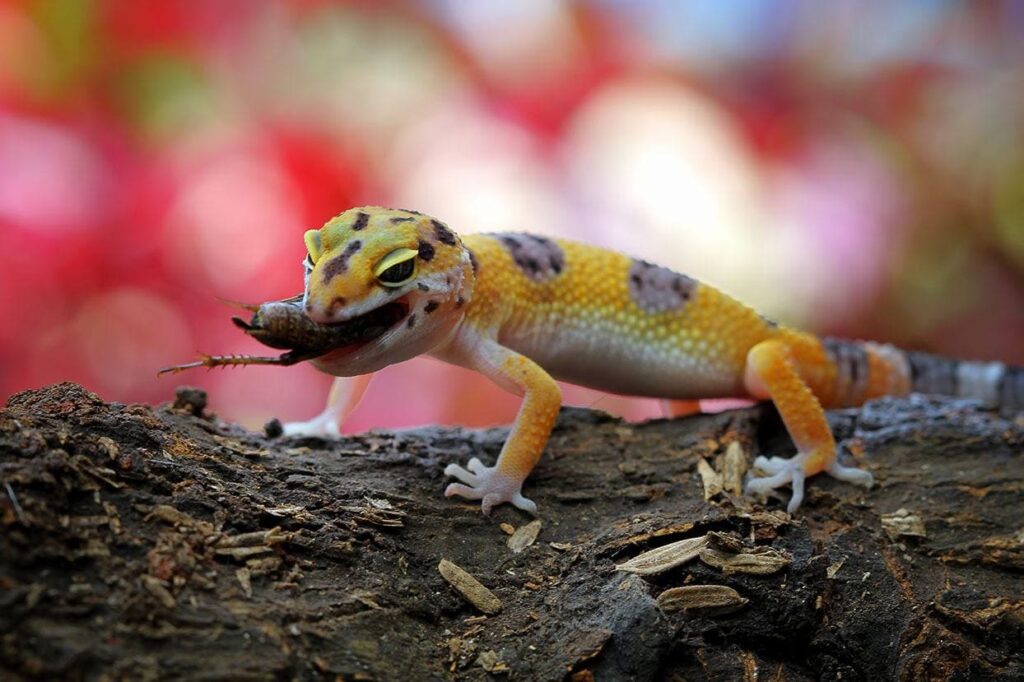
Choose an Opaque Container: Opt for an opaque storage tote or bin made of smooth plastic. This material makes it difficult for roaches to climb out and escape. Ensure the container has proper ventilation to prevent mold from developing inside.
Create Hiding and Climbing Spots: To keep the roaches active and thriving, repurpose carton boxes to provide hiding and climbing spaces. Be cautious not to let these structures reach the top of the container to prevent roaches from escaping.
Maintain the Right Temperature: They thrive in warmer environments. Aim to keep the storage area within the temperature range of 70 to 90 degrees Fahrenheit (21 to 32 degrees Celsius) to ensure their well-being.
Offer Nutritious Food and Hydration: Also, have a diverse diet that includes vegetables, grains, and fruits. These not only serve as their food source but also provide hydration. Opt for moist food items. Avoid placing a water dish in their storage container to prevent drowning, and make sure to remove any leftover food promptly to prevent it from rotting or molding.
FAQs
Do They Need to Be Dusted with Calcium?
Yes, it’s crucial to dust Dubia roaches with calcium powder before feeding them to your leopard gecko. This ensures your gecko gets the necessary calcium for its bone health.
Are Dubia Roaches Better than Crickets for Leopard Geckos?
Yes, Dubia roaches are often preferred over crickets due to their higher nutritional value and ease of handling. However, individual geckos may have preferences, so it’s good to offer variety.
How Many Dubia Roaches Does a Juvenile Leopard Gecko Eat?
A juvenile leopard gecko, aged 3-6 months, typically eats around 3-5 medium-sized Dubia roaches per feeding, 3-4 times a week.
Do Dubia Roaches Smell?
No, Dubia roaches are generally odorless when compared to some other feeder insects like crickets. However, it’s essential to maintain clean conditions in their storage to prevent any unpleasant odors.
Final Words
In summary, I’ve learned that leopard geckos can indeed eat Dubia roaches, which offer them important nutrients. These roaches are high in protein and have the right balance of calcium and phosphorus, essential for gecko health. However, it’s vital to add calcium and vitamins to the roaches before feeding them.
While they are great, there are factors like cost and availability to consider. So, it’s crucial to provide a variety of foods for a well-rounded diet. By doing this and keeping an eye on their health, we can ensure our leopard geckos stay healthy and happy.

